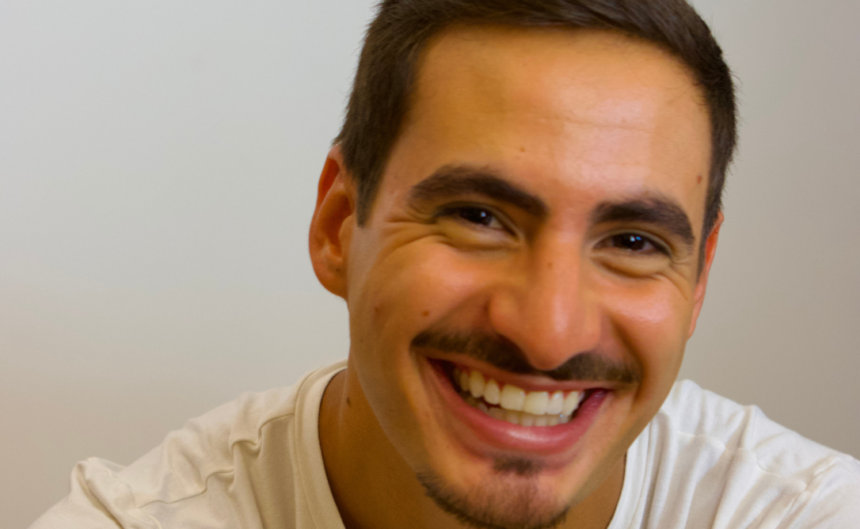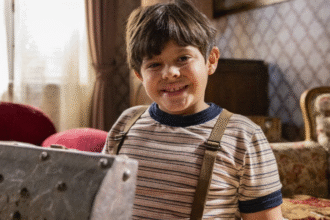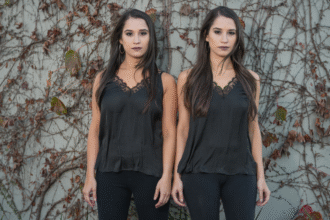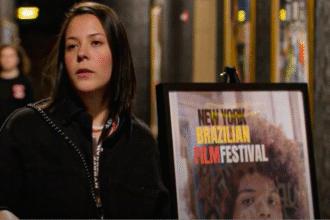Rio de Janeiro actor Diogo Tarré , 25, has been cast in Globoplay’s new exclusive soap opera, Guerreiros do Sol. Directed by Rogério Gomes and João Gomez, and written by George Moura and Sérgio Goldenberg, the plot is set in the 1920s and 1930s, inspired by the story of Lampião and Maria Bonita. In the production, Diogo will play Romualdo, son of Heleno and Linete, played by Tuca Andrada and Mayana Neiva, and brother of Maura, played by Heloísa Honein .
You began your artistic career as a child, at the age of six, in the theater, and have already accumulated an impressive amount of work in TV, theater and cinema. Looking back on this journey, what do you believe theater taught you about acting that you still take to the film sets today?
Studying theater is certainly irreplaceable for any actor, but I also always say that its benefits are important for any professional field that a person wishes to pursue. I would highlight the discipline in the craft that you develop over the years and active listening, being completely immersed in the present moment of the scenes. The experience that is gained in theater through improvisation always leaves us prepared for any unforeseen event on set. Those who come from theater enter the recording set in a different way.
In “Guerreiros do Sol”, you play Romualdo, a character that required immersion in the culture and language of the backlands of the 1920s and 1930s. What was the process of preparing for this role like? Was there a moment when you felt that you had finally “found” the Romualdo within you?
Studying the backlands of Lampião and Maria Bonita was essential to developing and interpreting Romualdo and, little by little, being able to bring him closer to me. His completely different accent and oral style was a different experience. So, immersing myself in prosody classes with Íris Gomes was essential. We had intensive classes, both individually and with the family from the story. Since there was a long gap between passing the test and “recording”, I took advantage of this time to look for references in drama and literature to fine-tune the character. Andrea Cavalcanti also helped us in this preparation of establishing a bond between father, mother, children and siblings closer to the recordings. I believe that this moment of “finding” Romualdo only really comes when you put on the costume and enter the set city, because then everything is in its right place.
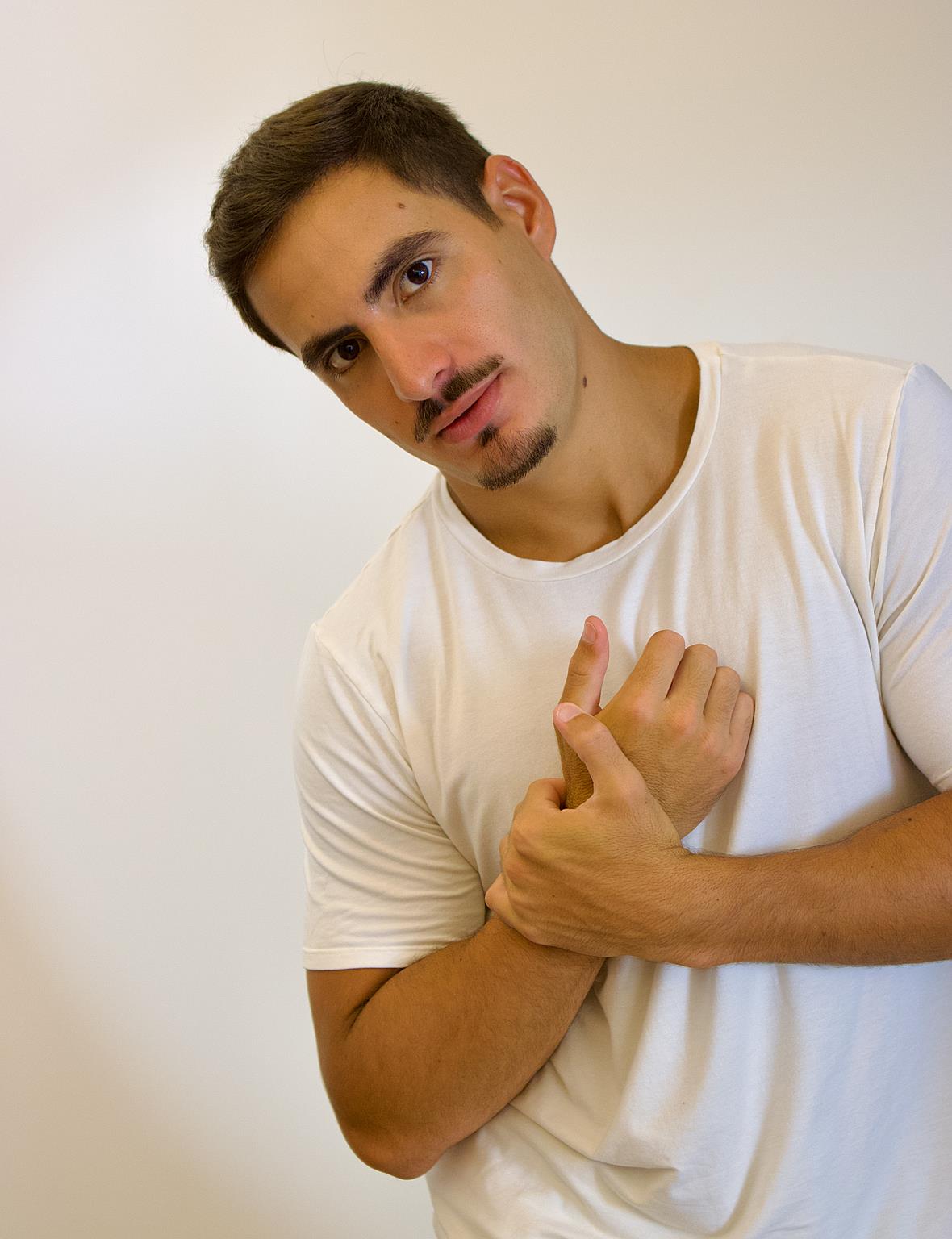
Acting alongside experienced actors like Tuca Andrada and Mayana Neiva, as well as sharing scenes with Isadora Cruz, must have been quite a challenge. What did you learn from these colleagues during the filming of “Guerreiros do Sol”?
It is always valuable to learn from the experience of the actors you act with. A good observer trains his or her eye to try to absorb a little bit of each person, paying attention to the positive aspects so that he or she can mirror them. In Tuca’s case, we had already worked together on Malhação Casa Cheia in 2013, so I had more freedom to ask for certain advice and tips on specific scenes, and he was always willing to help. I remember talking about career plans with Mayana, who made a lasting impression on me with “ TiTiTi ” in 2010. Finally, Isadora’s concentration on the film set is enviable, she is always very helpful.
You mentioned the difference between acting in theater and on TV — in theater, you have direct contact with the audience and the possibility of making corrections on stage, while on TV there is the option of editing. Do you have a preference between the two formats? Is there anything that only theater or only TV can offer you as an artist?
Today if I had to choose, I would opt for TV, but I have the dream of touring with a play, it is certainly rewarding.

Your passion for acting was evident from an early age, but you also graduated in Advertising and Marketing from PUC-Rio. How did this education influence your view of your artistic career and the entertainment market?
Despite their distinct careers, I am sure that both can also go hand in hand and complement each other. In today’s job market, with the influence of social media and the popularization of acting, today, the actor, by working on his image, has become his own creative director, producer, influencing his audience with personal marketing.
You have worked with renowned directors and have been part of important projects, such as “Malhação”, “Dois Irmãos” and “Travessia”. Is there a specific scene or experience in these works that left a deep impression on you as an actor and that you carry with you to this day?
As soon as I returned from a season in Los Angeles, studying at New York Film Academy , I was accepted for the series “Dois Irmãos”. I was 15 years old and thirsty for something new and I came across the direction of Luiz Fernando Carvalho. The way he directs the set, corresponded to everything I had read about him. The guy is different.
In “Sun Warriors,” you play a character who is part of an intense and multi-layered family plot. What was it like building this family relationship with the cast? Was there any dynamic or rehearsal that helped create this connection?
We had an immediate connection, everything flowed very well! We met two or three times online but only met in person on the day of the first recording.
You mentioned being a fan of the work of George Moura and Sérgio Goldenberg. Now that you’re working on one of their projects, how has that experience been? Did you feel any pressure or did that end up being an extra motivation to give your best on stage?
It was certainly stimulating, but regardless of the author of the work, the actor will always find motivation in something. Whether it’s working with someone you admire or simply doing what you love.
Follow Diogo Tarré on Instagram

